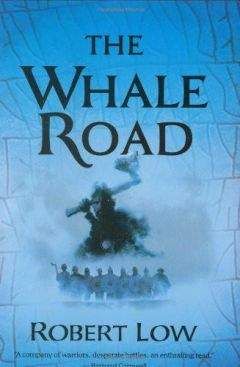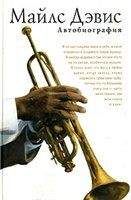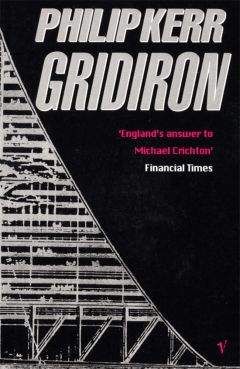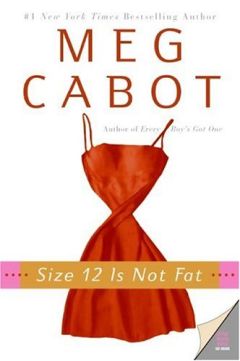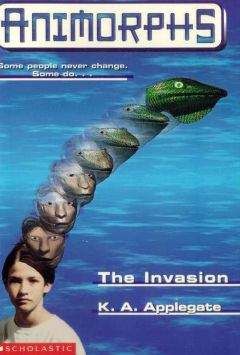Greg Iles - The Devils Punchbowl
I think Quinn has it, Kelly says. But hes keeping it for himself. Its his ace in the hole if the Po sting goes bad. A chip in the game with Hull. That's one reason Quinn flipped out and attacked me. I was dead right about him getting positioned to stab his boss in the back.
Do you think its really safe to bring Annie back?
As long as we stick to the agreement. They have nothing to gain by antagonizing you further, and now they understand they have a lot to lose.
What do you mean?
They know well bypass the law as easily as they will. That's something they needed to know.
I look into Kellys eyes for a while but say nothing. When I start to shake his hand, he turns and starts walking toward the parking lot.
Whats the matter?
Quinns bound to be watching us. We don't want anything that looks like a good-bye scene. We want them thinking I'm right around the corner, day and night.
Sorry.
Kelly laughs softly as I catch up to him. That felt good, didn't it?
The last knot of tension is starting to uncoil in me. I've got to say, seeing Quinn on the floor with the knife to his throat beat any courtroom moment I ever had. How did you get the knife in there?
Flint doesn't show up on the wands. No metal.
Where was it hidden?
Lower back, in the little valley over my spine. I guess its my version of Walt Garritys derringer necklace. People miss it all the time.
A flint knife, I marvel. A cavemans weapon.
Kelly turns back and gives me a serious look. Remember what I told Caitlin last night. Were still in the cave. Its just bigger now. He pats my shoulder. Tonight youre going to eat dinner with your little girl. Lets get to the airport.
CHAPTER
37
Linda Church crouches naked and shivering in the corner of the kennel stall, praying for deliverance to a God she has almost given up on. Theres a dog collar around her neck, and a heavy chain runs from the collar to a steel post anchored in cement. The kennel is a long, low building with a tin roof, hidden entirely beneath a tall shed so that it cant be seen from the air. The two rows of gated stalls are made of Cyclone fencing, with an office and a storeroom made of plywood at one end. Theres a barred window in her room, but she doesn't dare try to break out of it. The kennel is surrounded by a high fence, and a half dozen ravenous pit bulls roam free between the outer wall and the fence.
That's why Quinn feels confident leaving her alone here. Even if she could somehow get the chain off, Linda couldn't leave the kennel. But the truth is, she hasn't the strength for any of that.
When someone is hurting you and you beg them to stopand they don't stopsomething breaks inside you. Linda learned that very young, and shes lived most of her life trying to escape that feeling, to heal what was broken inside her. Tim was the first man who ever really helped her with that, and Quinn killed him. Hes already admitted that. The first time Quinn raped her in the kennel, he described Tims last minutes on earth, the desperate attempt to make them think he had wrecked his car, his flight into the woods
near the Devils Punchbowl. But Tim hadn't counted on Sandss dog. The Bully Kutta had run him down in minutes and savaged him before the men could pull him off.
Linda shuts her eyes and tries not to think about last night, but its impossible. On top of her infected leg and torn knee, shes getting a urinary-tract infection. The pain is almost unbearable when she pees, like a razor blade in her urethra, and she shivers for two or three minutes after shes finished. She stopped drinking water to keep from having to endure any more pain, but that seemed to make it worse. She cant understand why a man would want to have sex with a woman in the shape shes in, but Quinn does. Maybe the pain arouses him; maybe thats the whole point.
Shes cried until she has no tears left. She believed with all her being that her escape from the boat had been divine providence, that she was really going to get clear as a reward for her bravery on the boatwhich had in reality been a willingness to accept death, if necessary. To take that step and then be betrayed by the very servant of God, or one who put himself up as that this had broken her. She feels valueless. Doomed. Like the altar boy must feel when he realizes that the priest who is using him doesn't love him, doesn't care for him at all, but sees him only as a means to an end.
Linda has never truly wished for death, despite enduring very hard times. Shes known girls who committed suicide, but she could never believe that they hadn't had some better choice, if only they had looked hard enough. But here, in this place, she sees no hope of deliverance. Only more rape, more pain, and a terrible death in the end. Quinn has told her he means to feed her to the dogs when he tires of her, and she knows he will do it. He has hated her for being Sandss favorite, and thus unavailable to him. Quinn would sometimes come sniffing around the Devils Punchbowl, but he couldn't risk it often because the cameras were always on, and Sands might see him from the security suite or the interrogation room. Still, she always felt Quinns eyes creeping over her body whenever he was near. Shed turned to find him staring at her so many times that shed come to think of his hungry gaze as she did the hairy black caterpillars shed feared as a child, the ones that injected an anesthetic as they stung you. By the time you looked down and saw one of the revolting things on your leg, you knew it had been there for a long
time, injecting its poison. And half an hour later the burning would begin.
Now Quinn is free to do with her what he will. Linda has never seen so much hatred and anger knotted up inside a man, but she knows she will bear the brunt of it until she can bear no more. So she prays hopelessly for she knows not what, while the wind rattles the fences and the dogs prowl the dirt beyond the plywood wall.
Please, Lord, help me, she whimpers in the dead air of the kennel. Please send me an angel. I'm too sick to help myself. I cant do no more.
CHAPTER
38
Caitlin has not come to Tims funeral. This morning she called and told me that the way to honor Tims life was not to grieve in a church, but to carry on his work. If we couldn't do that, she said, she couldn't bear to sit in the cathedral and dishonor his memory. When I asked what she intended to do instead, she said she was going down to the newspaper office to think about all that had happened and to try to make some decisions about her future. Her tone made it plain I was not to be a part of this process.
Skipping the funeral wasn't an option for me; I'm a pallbearer. Eight of us are sitting behind the Jessup family in the center pews of St. Marys, a beautiful Gothic Revival cathedral built in 1843. Most pallbearers in Natchez are old men grown too frail to carry their dead friends, but today I'm seated among seven strapping boys I went to high school withmen now, of coursewho have flown in from every corner of the country. Los Angeles, Chicago, Wisconsin, Oregon, Atlanta, D.C., other places. To my surprise and relief, not one man that Tims father asked to perform this duty made an excuse not to show. More surprising, at least twenty-five people from our senior class are present, and most have traveled far to be here. Since we had only thirty-two students in our graduating class, this is a significant percentage. Earlier, we held a sort of unofficial reunion outside the cathedral, trading updates on kids, careers, class
gossip. After we pallbearers received our instructions inside, a couple of my old friends asked some pointed questions about what had brought us all together. I told them only that Tim had lost his life while trying to help the city, and that hed transformed that life before he died.
After the processional was complete, I was amazed to find St. Marys filled nearly to capacity. I had worried that, like his wake, Tims funeral would draw few mourners, but it seems that a decision has been taken by the congregation to support Tim and his family despite the poison being spread by Charlotte McQueen. These people understand that one of their children could easily have killed someone during a drunken drive to the county line during college, as Tim did, and only the grace of God spared them such a tragedy. The Catholics in Natchez have always seemed to me a great extended family, and they're proving it today.
Father Mullen made the right choice in the end: Tim is getting the full Catholic funeral mass. This, along with the presence of my friends and the large turnout, warmed my heart initially. But as the ritual proceeds, that warmth slowly dissipates in the vaulted vastness of the cathedral. Father Mullen, dressed in white vestments, begins a reading through coughs and throat clearings and the stifled cries of infants. Hes chosen a passage from 2 Timothy, one that has more relevance than the name of the book.
Remember the gospel that I carry, Jesus Christ risen from the dead, sprung from the race of David: it is on account of this that I have to put up with suffering, even to being chained like a criminal. But Gods message cannot be chained up. So I persevere for the sake of those who are chosen, so that they, too, may obtain the salvation that is in Christ Jesus with eternal glory. Here is a saying that you can rely on: If we have died with him, then we shall live with him. If we persevere, then we shall reign with him. If we disown him, then he will disown us.
Perhaps my private testimonial to Tims heroism moved Father Mullen to be brave. As the priest continues, my gaze drops from his face to the heads and shoulders of the family in front of me. Dr. and Mrs. Jessup are as shattered as any parents whose child precedes them in death. Julia sits beside them with the baby on her lap, bereft and bewildered. She has not made eye contact with me today,
though weve stood only a few feet apart more than once. But now her son peeks over her shoulder and finds my eyes, his own filled with bemused innocence. I search for the father in the boys face, but where I find Tim is twenty feet closer to the altar, in the gleaming bronze casket I will soon help carry to the cemetery where we met on the night before he was murdered.
That night, Tim told me not to blame myself if anything happened to him. But today the very silence of his closed coffin seems a screaming indictment of all my recent failures. Am I the only one who hears it? I probably look normal, even detached, to those assembled here. But inside, a storm of emotion is slowly gathering force. Here in this mystical atmosphere of candles and incense and holy water, other things Tim said that night come back with the accusatory weight of deathbed charges. I had promised the people so much, he reminded me. How could I consider walking away from a battle Id scarcely even joined? The silent echo of his words makes me bow my head in shame, and with shame comes anger and resentment.
Stealing a covert glance at the disinterested faces behind me, I wonder how these people would react if I resigned as mayor. They know nothing of the actions of Jonathan Sands, or of the threat posed by the
Magnolia Queen.
My stepping down would send a short-lived wave of gossip through the city, and then someone else would take over the job. Life would go on as before. Many in these pews would be happy to see me go. Several among them fiercely resisted my early efforts to change the educational system in Natchez, as one would expect from a group that supports a strong Catholic school. And all pointed out the contradiction of my preaching a move to the public schools while supporting my alma mater, which is private.
Despite his bold reading, Father Mullens homily is vague and aimed squarely at the faithful in the pews. He might have written it specifically not to offend Charlotte McQueen. As he speaks, I sense melancholy regret in the crowd, but not the dazed sorrow people usually feel at the funeral of a man in his forties. Most here todaycertainly my peersalways expected Tim Jessup to die young, probably long before now. Except for the lingering questions about how he died, theres a sense of anticlimax about this ceremony. As people kneel and sit and stand as though controlled by a central computer,
I feel a wild urge to stand, take the pulpit, and do what Dr. Jessup has probably given up hope that I will dotell the truth about Tims life and death.
But what would it accomplish? Would these people rise as one, march down Silver Street, and drag Sands and Quinn off the boat to face a rough justice? Would they burn the
Magnolia Queen
where she lies? Such things have happened in Natchez before. Games of chance and horse racing were always popular here, among both the aristocracy on the bluff and the riff-raff below. But in 1835, when the organized gamblers of Vicksburg fled to Natchez Under-the-Hill after several of their number were hanged, prominent Natchez attorney John Quitman led a group of citizens down Silver Street, rounded up the offenders, flogged them savagely, and drove them out of town. Such clean outs occurred regularly in the old days, and sometimes involved more than horsewhips. But no similar uprising would happen today. Such things are left to the police now. If the authorities don't pursue a case, people assume theres no real wrongdoing, at least none they need concern themselves about.
My frustration feels alien after the buoyant exaltation I experienced outside the cathedral, where my old classmates expressed endless admiration for my work as mayor. Seeing so many boyhood friends gathered together was a shock to my systema different kind of shock than those I've endured for the past few days, but a shock nonetheless. For two years, I've received a steady stream of calls and e-mails expressing thanks and respect for my commitment to the town. All have written or spoken of how much they miss Natchez, and how badly they would like to return. I never doubted their sincerity, at least during their nostalgic moments. But the fact is, almost none
have
returned. Most cant, of course. Theyre successful, ambitious professionals who cannot earn a living in a town without a thriving economy. Theyve established families elsewhere, most in the suburbs of large cities. During holiday visits over the past two decades, theyve noted that Natchez has declined from the idyllic years they remember, and theyve expressed a desire to help save it. Yet this urge passes, and few bother to send annual checks to St. Stephens Prep, much less to inquire what they can do for the town. I cant condemn them for that. Prior to moving back home, I experienced the same sentimental feelings during my own rare visits, yet I
